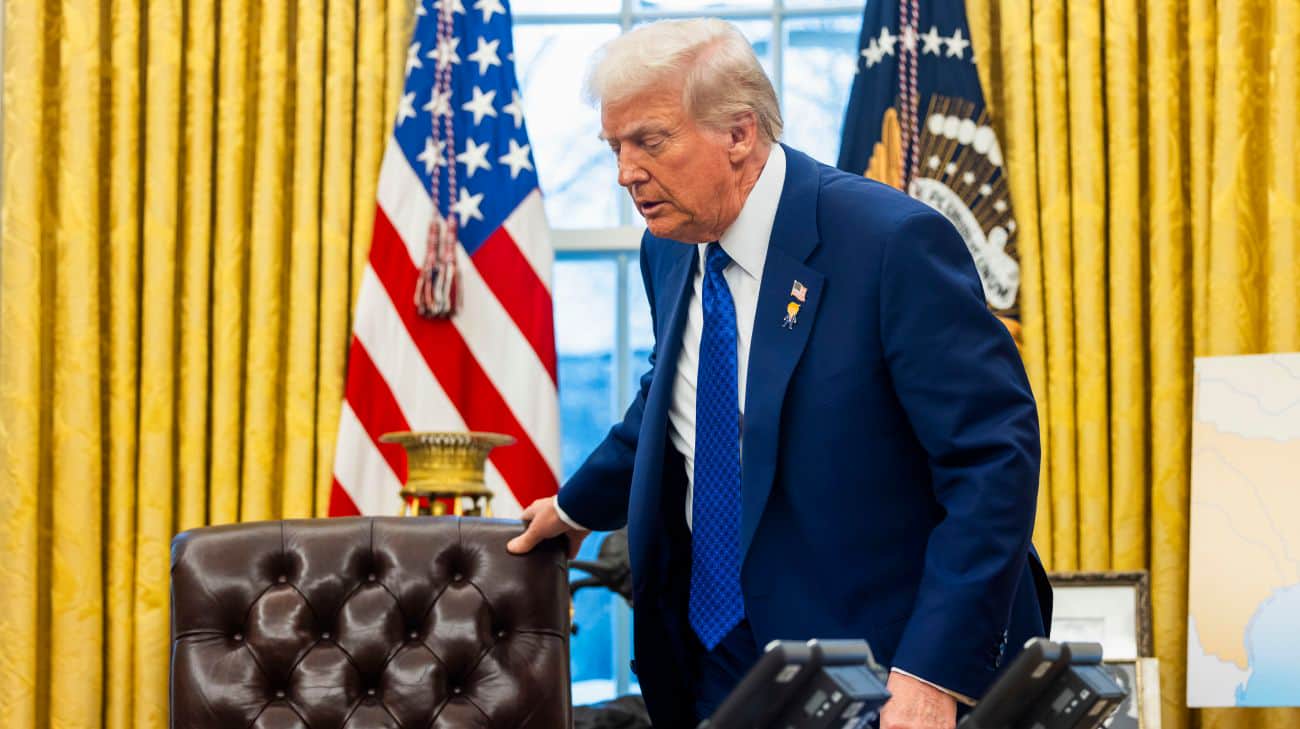Inspection Justice and Security: Police were surprised by Maccabi riots, but quickly adapted
:format(webp)/s3/static.nrc.nl/wp-content/uploads/2024/12/27113911/web-2712ONDreconstructie1.jpg)
If it would get out of hand in November last year around the Ajax – Maccabi Tel Aviv football match, then according to scenarios that the police knew. Hooligans could attack each other in groups. The Kristallnachtmendening that same evening could be disturbed by demonstrators, in a similar way as at the opening of the Holocaust Museum.
That disturbances could also go very differently was not on the retina with the police. So when small groups of rioters started carrying out targeted attacks on Israeli Maccabi supporters and on « people who were considered Jewish, » the police were surprised.
Read also
Also read the reconstruction: how Amsterdam became a fight scene of the Gaza War
This is evident from a report that the Justice and Security Inspectorate published on Monday morning. The Inspectorate, which supervises implementing organizations within the Ministry, investigated how the police and the National Coordinator for the fight against Terrorism and Security (NCTV) prepared for the competition and the commemoration, and how the police actually acted. Images of abuse and other disturbances went around the world at the beginning of November, led to diplomatic tensions and further unrest between groups in Amsterdam.
The police have experience with classic scenarios, says chief inspector Peter Neuteboom. « And now a situation occurred in which rioters went after individual supporters. The police had no answer to that. »
The report praised the way in which the Amsterdam police managed to adjust its working method on the street when the situation turned out to be so different than expected. The Amsterdam police, says Neuteboom, « continued to work within existing concepts, until they saw around midnight that something else was going on than foreseen. Then they decided not to go after rioters, but to protect the attacks. » For example, by enclosing a large group of Maccabi fans and taking buses to hotels. By switching quickly, the police acted « professionally and decisively, » he says.
At the same time, the report raises the question of whether the police did not get that surprise about themselves. Didn’t it keep thinking in classic scenarios for too long, when the situation in app groups and in the city could also point to something completely different? « We are not completely satisfied, » says Neuteboom
It goes wrong for the first time in the night before the competition. In Amsterdam app groups, the attacks of Israelis had already been discussed for a few days – the police also read those messages, reported Het Parool In December. On the evening itself, Maccabi fans travel through the city center. They pull a Palestinian flag of a facade, attack a taxi driver and – that information from the report is new – attack with ‘padlock scooter riders’. After that, taxi drivers, among others, mobilize, in particular around a casino where many Maccabi fans have met. That is as the police expected: groups that attack each other.
But that same night, individual Israelis are already attacked in several places in Amsterdam, after which the perpetrators flee quickly – exactly the type of attack that will repeat itself in multiple the next evening. Also Thursday afternoon, in broad daylight, such a ‘flash action’ takes place, on the Spui. Yet those actions are not recognized as a deviation from the prepared scenarios. App messages that, especially on Thursday during the day and in the evening, already call to « loose groups » and « Zionists everywhere you see » are seen by the police as confirmation of their scenario.
How is that possible? Neuteboom is « talking a bit for the police, » and says: « That abuse on the Spui was a unique action at that time. The police make the consideration that it is a self -contained something. Afterwards it was not that. » And « afterwards it was perhaps unhappy » that threatening app messages were interpreted by the police within the classic scenario.
At the same time, Neuteboom saw no announcements in the app reports that he could read for what actually happened on Thursday night: super -fast attacks by boys on Fatbikes and scooters. There was therefore ‘no reason to develop other scenarios’ than those who fit within the classic frameworks. It was « Business as usual« There, says Neuteboom, » you should not burden the higher level « : the triangle of Mayor Femke Halsema, the police chief and the Public Prosecution Service.
Abused
The attacks on Thursday night were ultimately not only against Maccabi fans, the report concludes. Jews and people ‘rioters thought they were Jewish were also explicitly searched for, « said Neuteboom. For that reason, several people have actually been mistreated, while they were neither Jewish nor Israelic, according to statements from agents, reports on social media and statements of victims.
Could all have it been different? Having answers to questions you don’t know is not possible, says Neuteboom. « Who can do that earns the main prize. » At the same time, the classic deployment of the mobile unit in flash actions such as the one after the game is ‘too static’. According to the inspection, the police must therefore develop ‘flexible and adaptive’ ways of commitment. Neuteboom: « The police must be able to switch faster to the unknown, so that they can take action earlier. »
The inspection has its original question – summarized: What information did the police and the NCTV have before and during the riots? – Extended to the implementation. In addition, the report not only looks at the police, but also at the NCTV.
Mayor Femke Halsema of Amsterdam personally called the head of it on October 29 – « because of worries about the special circumstances and context in which the competition takes place », as the Amsterdam triangle wrote after the riots. The mayor later said she had explicitly asked about the threat surrounding the presence of the supporters. According to the report of the Inspectorate, the NCTV saw « no reason to advise additional measures. »
In retrospect, this led to some resentment between the municipality and NCTV, where each gave a different explanation of what was asked and what was advised. It is reason for the inspection to advise the NCTV: make it clearer what municipalities can and cannot expect from the safety coordinator.

:format(webp)/s3/static.nrc.nl/wp-content/uploads/2025/05/26165459/data132845831-d4e505.jpg)
/s3/static.nrc.nl/images/gn4/stripped/data133765836-fcc261.jpg)
/s3/static.nrc.nl/images/gn4/stripped/data133766426-890bc5.jpg)




